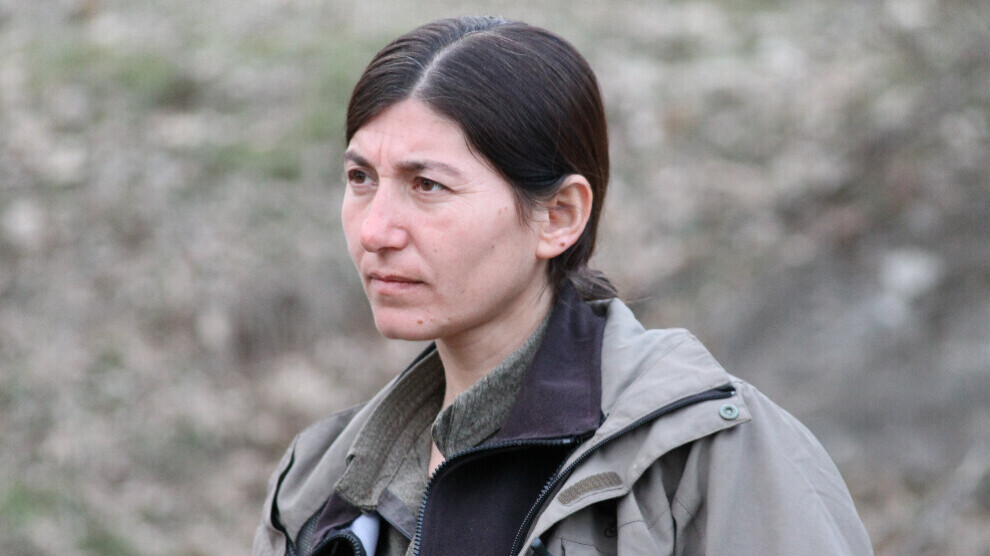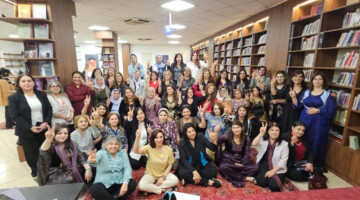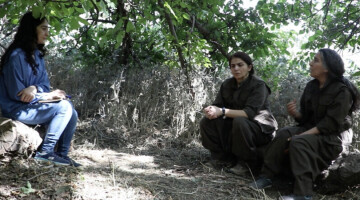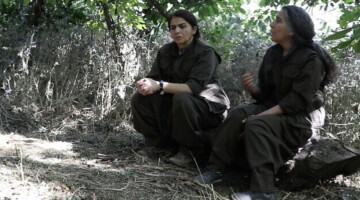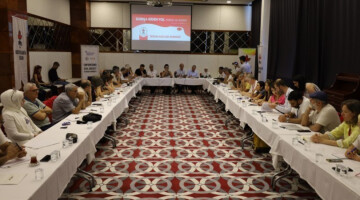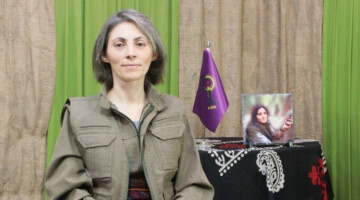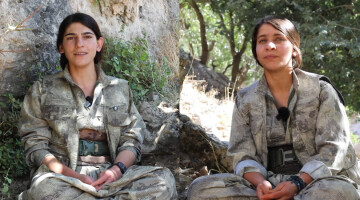29 years ago, on October 25, 1992, the guerrilla commander Bêrîtan (Gülnaz Karataş) died in Southern Kurdistan. The "Southern War," in which Bêrîtan was killed, broke out after the proclamation of the Autonomous Region of Kurdistan on October 4, 1992. When regional and global actors, first and foremost the Turkish state, gave the green light to a federal system in Southern Kurdistan, the Kurdish parties PUK (Patriotic Union of Kurdistan) and KDP (Kurdistan Democratic Party) demanded joint war against the PKK in return. As a result, the forces of Southern Kurdistan went to war against the PKK guerrillas alongside the Turkish army. The goal was to push the Kurdish guerrillas out of the Heftanîn, Zap and Xakurke regions in particular. However, the recurring phenomenon in Kurdistan's history, in which betrayal and resistance are always parallel, was to appear here as well.
Encircled by KDP peshmerga fighters in Xakurke, Bêrîtan refused the demand to surrender. She fought to the last bullet, then destroyed her weapon and jumped to her death from a cliff to avoid being captured. Her action has since been regarded as an example of determination against betrayal and the trigger for the autonomous organization of Kurdish women within the PKK. Shortly after her death, the first steps were taken to establish a women's army.
A month of victory and dignity
Feride Alkan is one of the commanders of the headquarters of the women's guerrilla army YJA Star and has commented on the radio station Dengê Welat about the fallen fighters in the month of October and the personality of Bêrîtan. She calls October a "month of victory and dignity" for the Kurdish liberation movement and the women of Kurdistan: "One of our great martyrs who died in this month was Gülnaz Karataş (Bêrîtan). As we know, the Turkish state launched a major operation in 1992 in cooperation with the KDP and PUK. On one side, the KDP attacked, and on the other, the PUK attacked. In addition, the Turkish state attacked from the air with NATO and Israeli aircraft. From Heftanîn to Zap to Xakurke, attacks were carried out everywhere. This was to defeat the PKK and enforce the KDP line. One of the most difficult areas was the Soran front, where fierce fighting took place under the command of Bêrîtan.
Comrade Bêrîtan resisted the treachery of the KDP and PUK on the line of Rêber Apo [Abdullah Öcalan] until the last bullet. When she was encircled, she destroyed her weapon and threw herself into the abyss with the slogan 'Bijî Serok Apo' in order not to fall into enemy captivity. She continued the resistance tradition of women like Besê and Zarîfe."
Freedom must be fought for in Kurdistan
Bêrîtan defined the relationship between struggle and freedom very well, Feride Alkan explains, "She gave us the message that we can only become free through struggle and must fight continuously to achieve our goal. When she was surrounded, she refused to surrender. This attitude led to the creation of the Women's Army. In December 1993, Rêber Apo ordered women to join the army. This step took place in memory of Comrade Bêrîtan. We are all in debt to Bêrîtan. She showed us that life in Kurdistan without struggle is not possible."
Fallen internationalists within the PKK
Feride Alkan remembers other women who fell in October: "Çiğdem Türk fell in Behdînan on October 10, 1995. Helîn Çerkes was a Circassian and joined from Austria. She fell on October 13, 1998. Gurbetelli Ersöz fell in October 1997. Comrade Meryem Çolak was a deputy in Europe and joined the guerrillas. When she fell in October, she left a letter for her child in which she wrote: ‘I fight for you.’
One of the revolutionaries who fell in October 1997 was Andrea Wolf, who was known as Ronahî." YJA Star commander Feride Alkan says they had women of different backgrounds join the struggle, "They fought for freedom. With us, the martyrs stand for a dignified life."

